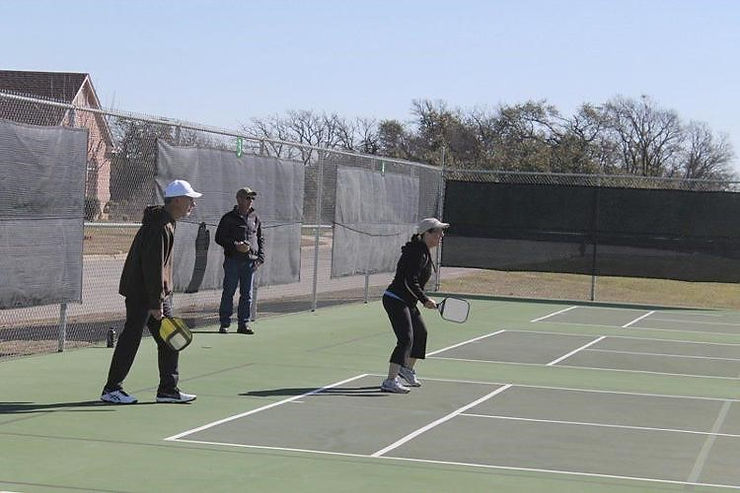By: Ethan Pi
It’s at least 10 pm at night. You settle down and get comfy on your bed for a warm night’s sleep. Suddenly, your ears are filled with all sorts of sounds: from chit-chatter behind the fencepost to the sound of a humiliated referee and a pickleball bouncing on the ground. After you jump out of your sheets and wonder what in the heavens the commotion was all about, you realize that your greedy and ignorant neighbors are out on the neighborhood pickleball court having the best time of their lives. After enjoying a decade of tranquility, you are tempted to file a noise complaint.
However, you’re not alone! The staccato pop-pop-pop sound of the pickleball paddle and the sharp legato of a referee’s whistle can become a great annoyance because of our nation’s multiplying pickleball courts. The result? Many people have elicited petitions and calls to the police. Others have filed lawsuits aimed at local parks, clubs, and the associations that opened pickleball courts in their neighborhoods.
“It’s a torture technique,” exclaimed 37-year-old Clint Ellis, who lives in a house across the street from a private club in York, Maine.
“It’s like having a pistol range in your backyard,” 82-year-old John Mancini remarked.
However, “Pickleball Noise” can be just as annoying as the deafening sound of a leaf blower, the tumultuous rumble of thunder, or even a blaring car zooming down an aisle. What makes the sound of pickleball so different?
The reason is simple: the whack of a pickleball creates a high-pitched noise that can reach as high as 70 decibels. This is slightly quieter than the disturbing sound of a vacuum cleaner. In comparison, sports like tennis only produce sounds at a 40-decibel range, making pickleball nearly 8 times louder. Plus, the slamming of the plastic ball on the cement floor creates vibrations in a tight range that can be annoying to nearby humans, and the noise of players cheering or celebrating can also be ear-piercing as well.
After the flourishing 21.3% increase in pickleball participation during the COVID-19 pandemic, pickleball was commonly played on tennis courts. This was because a tennis court could fit four pickleball courts, which was adequate room for everyone. Besides, people enjoy a whale of a time playing this sport, finding it quite addictive. Some even stay up late at night to immerse themselves in the activity, making what should be / is usually a peaceful and soothing night’s sleep impossible for residents.
Aside from noisiness, many residents are also worried that the sale value of their houses might go down because of the growing popularity of pickleball.
Whether neighbors like it or not, pickleball has prospered to not only become a new crowd-favorite sport, an attraction in American entertainment, and a growing amenity in real estate and luxury residential development, but also a noise-making device that irritates every soul. However, residents have shown a great sense of dissatisfaction with our nation’s fastest-growing sport, whether it is through filing noise complaints, repeatedly calling the police, or suing others. Even the faintest tap of plastic material on the ball could produce a vibration that residents abhor. But after all, nobody can discard the alarming disadvantages that this fan favorite activity brings.











